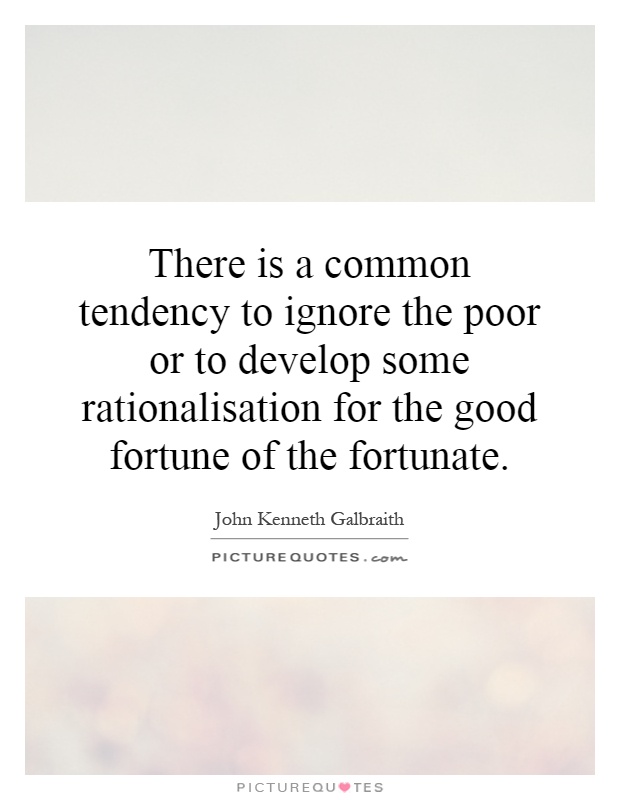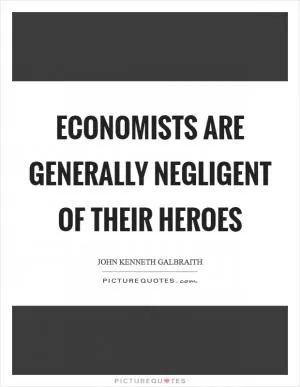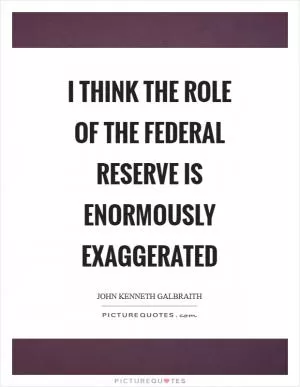There is a common tendency to ignore the poor or to develop some rationalisation for the good fortune of the fortunate

There is a common tendency to ignore the poor or to develop some rationalisation for the good fortune of the fortunate
John Kenneth Galbraith, a renowned economist and social commentator, was well aware of the common tendency to ignore the plight of the poor and to rationalize the good fortune of the fortunate. Throughout his career, Galbraith consistently highlighted the disparities in wealth and power that exist in society, and he was a vocal advocate for policies that aimed to address these inequalities.Galbraith believed that the wealthy and powerful often use their influence to perpetuate the status quo and maintain their privileged position in society. He argued that those in positions of power often develop rationalizations for their own success, attributing it to their hard work or intelligence, while ignoring the systemic barriers that prevent others from achieving the same level of success. This rationalization serves to justify the unequal distribution of wealth and resources, allowing the wealthy to continue to benefit at the expense of the poor.
Galbraith also recognized that the poor are often marginalized and ignored by society, with their struggles dismissed as a result of their own shortcomings rather than systemic issues. He believed that this tendency to blame the poor for their own misfortune only serves to perpetuate inequality and prevent meaningful change from occurring. Galbraith argued that it is the responsibility of society as a whole to address the root causes of poverty and to ensure that all individuals have access to the resources and opportunities they need to thrive.












 Friendship Quotes
Friendship Quotes Love Quotes
Love Quotes Life Quotes
Life Quotes Funny Quotes
Funny Quotes Motivational Quotes
Motivational Quotes Inspirational Quotes
Inspirational Quotes